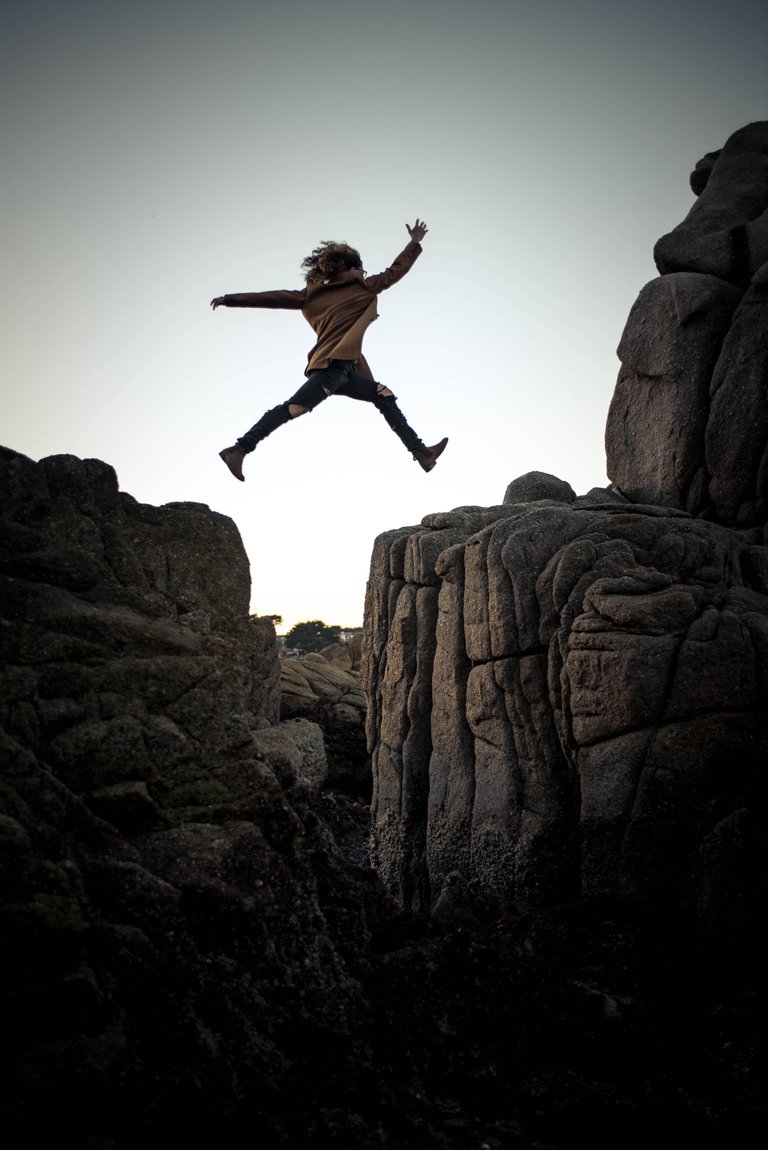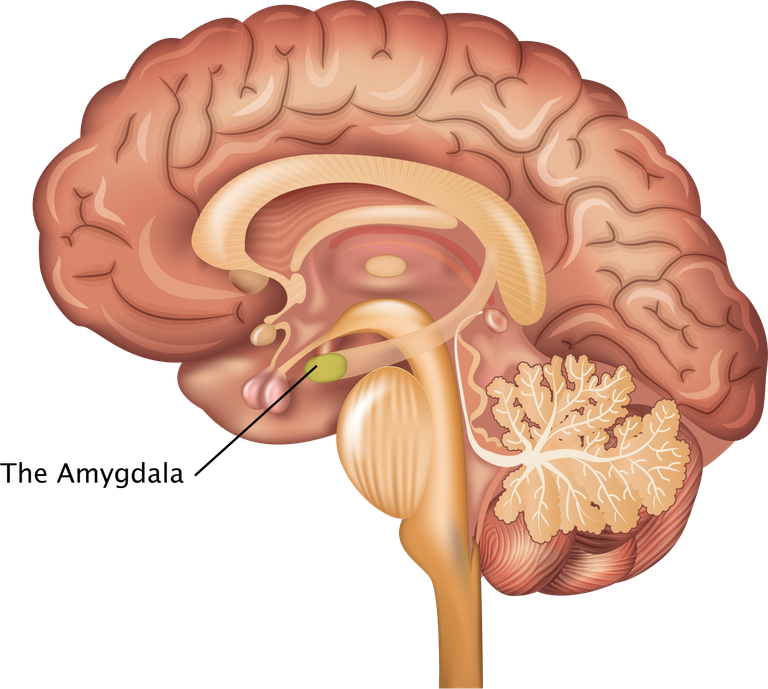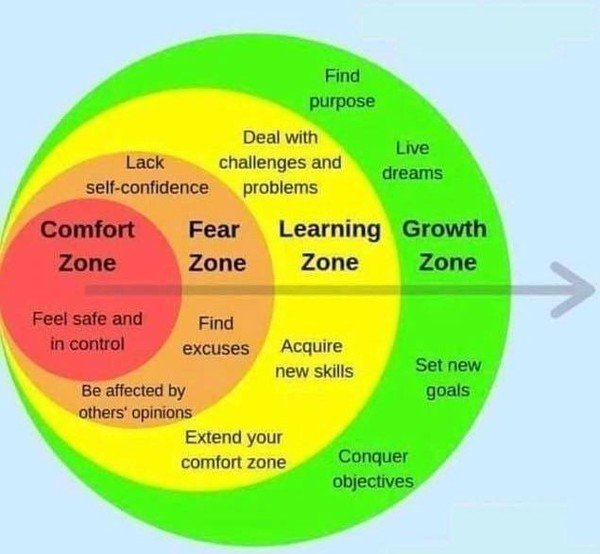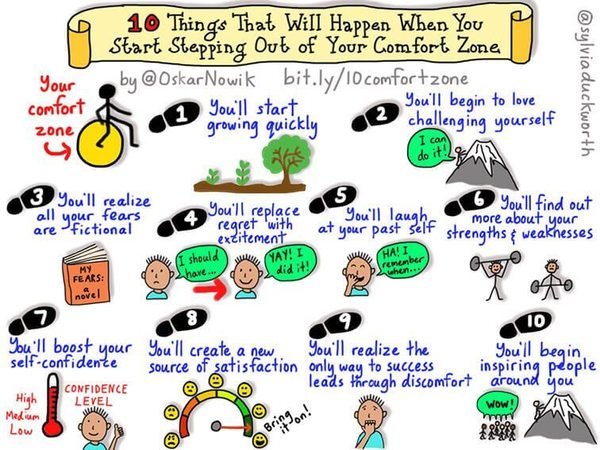“He who is not courageous enough to take risks will accomplish nothing in life.” – Muhammad Ali

Have you taken what you’d consider being “leaps of faith” in life?
What I may consider being a leap of faith will be different for you and vice versa. We all have our own types and levels of risk we’re willing/unwilling to take in life. What I consider being a normal day in my reality would be downright terrifying for someone else. But on the other hand, I think those without health insurance, for example, are way too risky, as that would scare the shit out of me.
Even though we understand how unique our lives are, we still feel the need to place our own insecurities on those we feel are acting too risky. But what right do we have to pass judgement on how others live their lives? Is it our responsibility to comment on how someone assumes risk?
Before we get into all of that, however, I’d like to start at the foundation and work my way up. And that means it always starts with the brain. Because for us to truly understand ourselves and others, we must first look at the very thing we all have in common and is responsible for our lives: the brain.
Even though we may think highly of our thought-processing skills, we’re actually bad at judging risk….like really bad. The human brain is often compared to computers in the way it processes billions of bits of information. But that’s not entirely accurate. That comparison is a bit too elementary for explaining the complexity around how the brain judges risk.
Our very survival depends on our ability to assess and react to risk. Clearly, our brains have been doing a pretty damn good job if we’ve survived this long as a species, right? We have our amygdala to thank for that. Remember, that little almond-shaped part of our brain is the most primitive and responsible for our fight-or-flight responses. It’s also the fastest to respond. So thank you, little Ms/Mr. Amygdala for always alerting us to danger and keeping us alive!

However…
Risk analysis happens in the neocortex section, which is the newer, least evolved part of our brain. That’s where critical and rational thinking live and is much slower to respond.
Thanks for the science lesson, Kira, but why does this make humans bad at judging risk?
Unlike computers, we have bias, stereotypes, shortcuts, guesses, etc… These are called heuristics, and they affect how we handle risk.
“The brain is a beautifully engineered get-out-of-the-way machine that constantly scans the environment for things out of whose way it should right now get. That’s what brains did for several hundred million years — and then, just a few million years ago, the mammalian brain learned a new trick: to predict the timing and location of dangers before they actually happened.” - Daniel Gilbert, Professor of Psychology at Harvard University.
Millions of years ago, the brain developed ways to make predictions. The problem is, it’s still in beta version. There’s more than a few kinks to work out, especially in handling modern-day society. Maybe in the next 100 million years (if humans are still a species), we will have evolved enough to perfect it. But until then, we’re playing life guessing games and assuming the worst when we try to predict the future.
It’s this very issue that makes us believe a “leap of faith” is a potential plunge to our death, hypothetically speaking. When in reality, it’s most likely jumping over a little puddle.
But how do you know for sure?
Well, you don’t. That’s why it’s called a “leap”. But perhaps it’s just a hop. For example, hearing about people taking out their 401k’s to live off of may throw you into panic mode with how risky that seems.For example, hearing about people taking out their 401k’s to live off of may throw you into panic mode with how risky that seems. It’s the “but what if’s” that scares people into not taking risks in life. And when we see others take on risks that we wouldn’t even dream of doing, we judge.
We unfairly judge another person’s assessment of risk. But here’s the thing, we don’t have that right. Now, we may not understand it or agree with it. But it’s not our responsibility to be their “savior” in what we consider “too risky”.
Translation: Worry about your own life.
My way of life is what some may consider “balls to the wall”, which is originally a military term for pushing maximum G-Forces in a jet fighter aircraft, as in pushing the ball of a throttle as high up as it will go (I’ve used that saying many times before, thinking it meant something entirely different. It wasn’t until a few years ago when I learned what it actually meant. But that’s just me and my in the gutter brain.)
What’s interesting about living this way is that it’s 200%. You don’t subscribe to what societal norms tell you is an “appropriate” way of life or risk-taking. It’s not careless or without deep analysis, however. It’s simply not fearing the unknown. I take leaps of faith all the time. And when I look back, I never regret them, even the ones that didn’t turn out the way I had maybe expected. But I will say, it’s the latter which is most intriguing.
Those couple of times that I forced myself to take risks against what I was feeling inside, is when it ended badly. I used to be horrible at trusting my intuition. Over the years, however, I’ve worked very hard on listening to myself and trusting the feeling I get. Before, I never would trust my feelings, even when they were screaming “don’t” because I know emotions are inherently irrational. And I would ignore them and say “everything’s fine”, when in reality the house is burning down, hypothetically speaking. But I’ve learned that risk-taking is about living in the middle of your critical thinking and your natural intuitiveness. That’s the sweet spot.
And it was a lot of work for me, as I’m way more of a critical thinker than someone who feels their way through life. It took forever for me to understand the inner voice was my intuition and to trust it, even if that means taking risks others see as absolutely insane. I have denied my intuition before and every time I have; it has led to disaster. By finding that balance between analysis and intuition, I have actually taken on more risk, resulting in more happiness in my life.
And the thing about taking risks is that you get very comfortable in being uncomfortable. I’m not talking about jumping out of airplanes. I’m talking about, for example, solo travel, quitting a job to find your life purpose, enjoying living in the now, flying to a city to meet someone for the first time, talking to strangers, etc…

I will tell you from many years living in the Growth Zone that it’s worth taking a “leap” into, no matter how scary it might seem. You have innate skills built inside you to keep you alive.
Trust yourself. Trust the inner voice.
“To know thyself is the beginning of wisdom.” - Socrates
You will have many people tell you how crazy you are and what a bad idea it is, etc… My suggestion is to keep your ideas to yourself. Do not allow outside opinions to even remotely dictate your decisions. You ALWAYS know best. It took me many years to really understand this. People will place their own fears of potential “failures” on you. But if you believe, like I do, that there are no failures, and you understand you only get one shot at life, you’ll take that leap of faith any chance you get. And you’ll be happier and most fulfilled.
One word of caution: You’ll find that you can’t be around people who fear the unknown or who don’t take leaps of faith. Because it takes an enormous amount of effort and trust in ourselves to decide to be in the growth zone, everyone back in Comfort-land won’t fit into your life anymore. Your relationships will change. You will move out of friendships. But you needn’t worry about this as it won’t matter to you. You’ll feel completely fulfilled and, in fact, thrilled that you no longer sit in a fear-based reality. At that point, the world is truly your oyster.
One word of advice: If you find yourself in a relationship with someone who doesn’t understand this way of life and tries to hold you back or place their insecurities and fears on you, run far and run fast. This is your life. As soon as you embrace this completely new life change, you will attract those who also share in this ideology. I promise you that.

there's a language gap in the saying of "leaps of faith” in Chinese and English, we can't find an exact translation for this phrase word, but I guess I still understand the meaning of this.
I would say, I was not a person who willing follow all the rules, I wanted to break the rules in my college life, I still tried to break the rules since I started working for years, ended up I found breaking the rules always make myself in trouble, slowly I don't dare to do so, but it's funny to seeing myself trying to do that again, maybe that's the DNA inside my body keeps telling me that, never follow the rules, go break it, leave your comfort zone, no matter you are going to succeed or fail, your life's way better, I can learn new thing in my own experience that making me feel like I am not a injected from the same mould like the others
I love this. Thank you for sharing about your life philosophy. I think the closest transition would be the Chinese idiom 冥行盲索.
You take risks even when you don’t know what’s on the other side. And you’re exactly right. It’s about getting out of the comfort zone and experiencing something that might feel a little uncomfortable. But that’s what life should be about! It should feel like an adventure into the unknown.
Thanks for such an amazing content! Very inspirational.
I still remember when a people once told me that "My comfort zone is chasing me but it cannot catch me". From that moment, I took that speech as my leit-motif